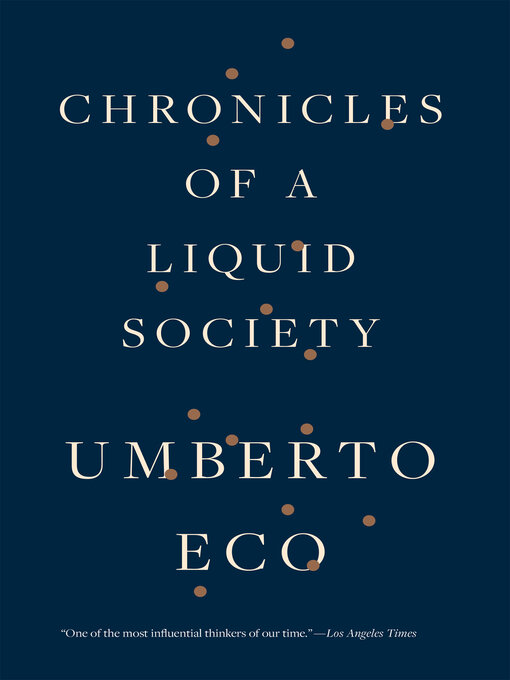The acclaimed author examines our contemporary world—from technology to politics and pop culture—in this collection of essays written for L’Espresso.
Umberto Eco was an international cultural superstar. In this, his last collection, the celebrated essayist and novelist observes the changing world around him with irrepressible curiosity and philosophical insight. He illuminates the contemporary upheaval in ideological values, the crises in politics, and the unbridled individualism that have become the backdrop of our lives—creating a “liquid” society that defies any organizing principle.
In these pieces, written for his regular column in the Italian magazine L’Espresso, Eco brings his dazzling erudition and keen sense of the everyday to bear on topics such as being seen, conspiracies, the old and the young, mass media, racism, and good manners. It is “a swan song from one of Europe’s great intellectuals…[Eco] entertains with his intellect, humor, and insatiable curiosity” (Kirkus Reviews).“An intelligent, intriguing, and often hilariously incisive set of observations on contemporary follies and changing mores.” —Publishers Weekly



